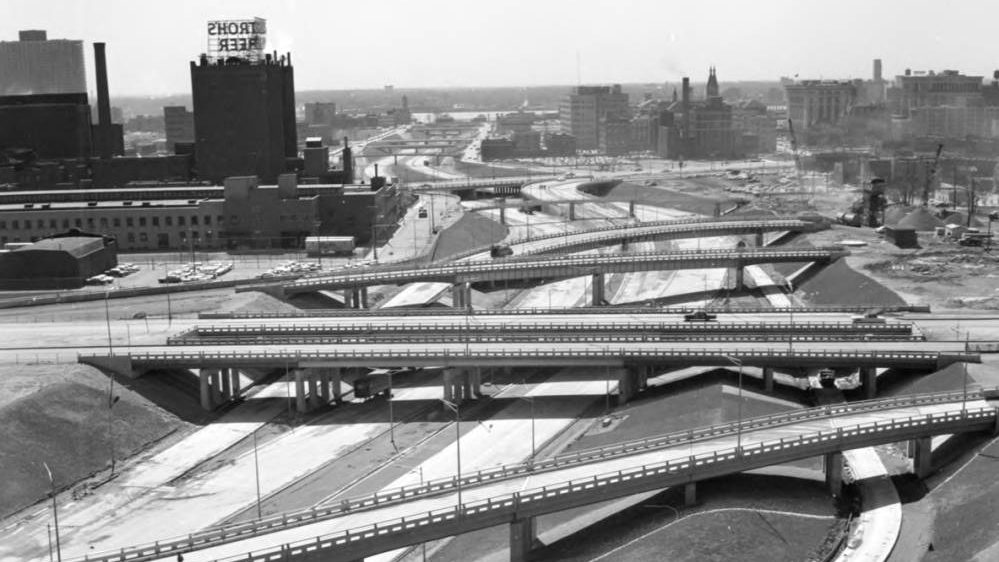Reckoning 375: How New Orleans prioritized people over pavement
“Reckoning 375,” a new miniseries from “Detroit Today,” will explore the history behind — and repercussions of — the freeway’s construction and replacement.

A view of the construction of the Chrysler Freeway at the Fisher interchange, under Vernor, 1964.
In the latest installment of Detroit Today’s special series, Reckoning 375, we continue our look at the plans to replace I-375 with a six-lane boulevard, and how the city is engaging community members affected by the freeway’s initial construction — which tore through the predominately Black communities of Paradise Valley and Black Bottom.
Host Stephen Henderson spoke with Asali DeVan Ecclesiastes, chief executive and equity officer with the Ashé Cultural Arts Center in New Orleans — another city that saw vibrant Black neighborhoods destroyed by highway construction — about what the City of Detroit can learn from New Orleans’ community outreach efforts during its removal process of that highway.
Later on in the show, Henderson was joined by Regan Patterson, assistant professor of civil and environmental engineering at the University of California, Los Angeles, to discuss why community engagement during highway removal projects is so important.
Subscribe to Detroit Today on Apple Podcasts, Spotify, Google Podcasts, NPR.org or wherever you get your podcasts.
Guests:
Asali DeVan Ecclesiastes is the Chief Executive and Equity Officer with Ashé Cultural Arts Center in New Orleans. She says setting up meetings at convenient times for residents was key to getting community input at the beginning of their highway removal project.
“We provide transportation, we provide childcare, and we provide food,” says Ecclesiastes. “If you don’t have those things you’re not really having a community meeting and you’re not really making it possible for people to be there.”
Regan Patterson is an assistant professor of civil and environmental engineering at the University of California, Los Angeles. She says the main issue in past highway removal projects has been insufficient community engagement.
“We’re continuing to see a kind of community not getting everything, or even the majority of their needs and interests reflected in the final outcomes,” says Patterson. “And so we’re starting to see with programs now around capacity building… to be able to engage in a different way to hope that their visions are reflected more positively in the outcome.”
Listen to Detroit Today with host Stephen Henderson weekdays from 9-10 a.m. ET on 101.9 WDET and streaming on-demand.
Trusted, accurate, up-to-date.
WDET strives to make our journalism accessible to everyone. As a public media institution, we maintain our journalistic integrity through independent support from readers like you. If you value WDET as your source of news, music and conversation, please make a gift today.
